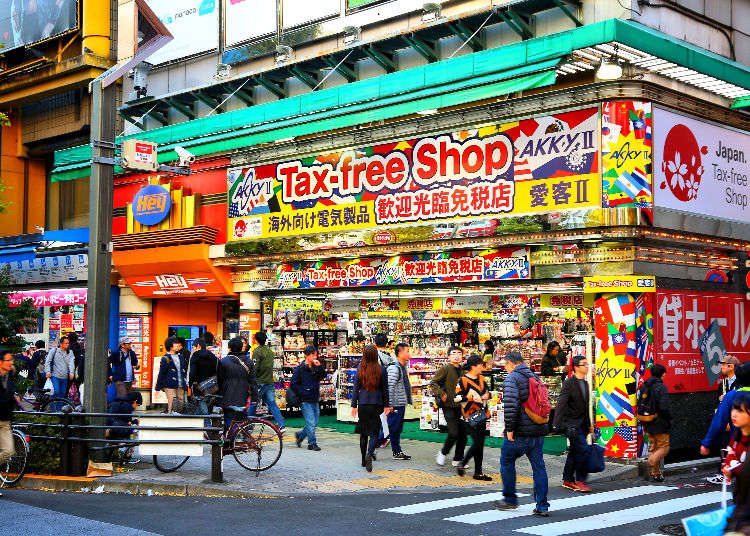Japan to hike consumption tax in 2019
October 18, 2018 | Expert Insights

Prime Minister Shinzo Abe announced that the government will be hiking the consumption tax to 10 per cent from the initial 8 per cent. This hike is scheduled to come into effect in October 2019, after retracting twice from its original proposed date of October 2015.
Background
A tax levied on the consumption of goods and services represents consumption tax. Consumption taxes are generally indirect, such as a sales tax or a value-added tax. The sole purpose of taxing consumption is to encourage savings. Many economists and tax experts favour consumption taxes over income taxes for economic growth.
Historically consumption tax has triggered massive protests and riots. For instance, in the US, the stamp tax and the tax on tea levied by the British government, and the whiskey tax by the federal government resulted in revolts. In India, an excise tax on salt led to Mahatma Gandhi's famous Salt March, which was a momentous event in the Indian Independence Movement.
In Japan, the Liberal Democratic Party government of Masayoshi Ōhira had attempted to introduce a consumption tax in 1979. However, Ohira met a lot of opposition within his own party and later gave up after the party suffered severely in the 1979 election. Ten years later after successful negotiations with politicians, bureaucrats, business and labour unions, former Prime Minister Noboru Takeshita was able to introduce a consumption tax in the country. It was initially levied at a rate of 3 per cent in 1989.
In April 1997 under the government of Ryutaro Hashimoto, it was increased to 5 per cent. The 5 per cent is made up of a 4 per cent national consumption tax and a 1 per cent local consumption tax. Incidentally, Japan fell into recession shortly after the tax was introduced.
The Democratic Party came to power in the August 2009 elections and promised not to raise the consumption tax for four years. The first DPJ prime minister, Yukio Hatoyama was opposed, but Naoto Kan replaced him and called for the consumption tax to be raised. On June 26, 2012, the lower house of the Japanese Diet passed a bill to double the tax to 10 per cent.
However, despite considerable opposition and an attempted no-confidence motion from minor opposition parties, the bill was successfully passed through the upper house on August 10, 2012. The tax was increased to 8 per cent by April 2014.

Analysis
Although fraught with the risk of an economic slowdown, the Japanese Prime Minister Shinzo Abe announced a 2 per cent increase in the consumption tax from 8 to 10 per cent which is to be levied in October 2019.
Prime Minister Abe expressed some confidence at an emergency meeting of his Cabinet and said, “based on the lessons we learned from the previous 3 percentage point increase, will do our utmost to minimise a negative impact on the economy by implementing all sorts of policies.”
The principal reason for this hike is to help finance preschool and other social security initiatives. Keeping in mind the negative impact of the consumption tax and previous experience, Chief Cabinet Secretary Yoshihide Suga said Prime Minister Abe also instructed relevant ministers to come up with measures to mitigate the downside
The government is trying to reduce the impact on the consumers s by easing the burden of buying and owning durable goods like homes and cars. The fear is that there could be a rise in demand for these consumer products before the tax is levied.
Other measures include keeping the tax rate at 8 per cent for food and drinks, except at eateries and alcohol. Small and midsize businesses also may use this as an opportunity to offer consumers rewards points equivalent to 2 per cent of their purchase when they pay by credit card or other noncash means. One possible offset from this would be that idea to boost the usage of electronic payments.
Apart from increasing spending for social security programs, a series of natural disasters that have drastically affected Japan in the recent months also has stoked desires to improve public works spending.
Counterpoint
Chief Cabinet Secretary Yoshihide Suga also hinted the government is not entirely ruling out the possibility that it may postpone the unpopular move after all. He expressed that the government’s stance on the hike may be in fact shelved in the event of an economic crisis as severe as the Lehman Brothers collapse.
Assessment
Our assessment is that a hike in consumption tax will indeed trigger an increase in the demand for consumables before the tax levy. We feel that the government has proposed the hike in lieu of the increasing ageing population in the country. We believe that the priority of the government is to ensure the maximum benefit of the social security programs reaches the citizens of the country.








Comments